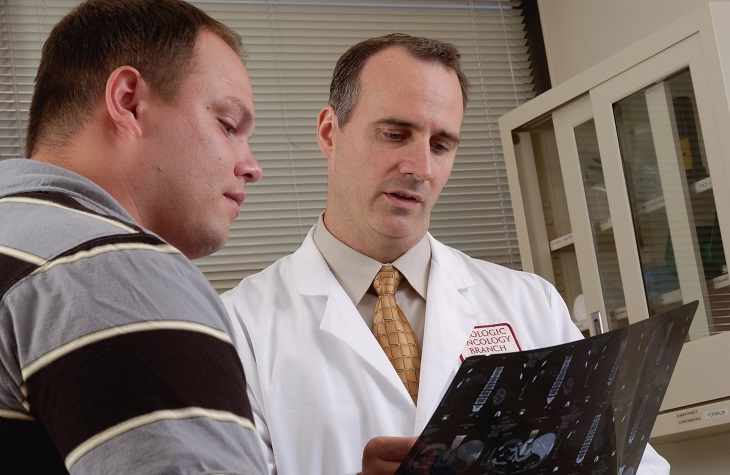THE DAILY DOSE
9 Common Triggers Of Anxiety

According to the Anxiety & Depression Association of America, roughly 40 million American adults have an anxiety disorder. That is close to 20% of the population. With such a high prevalence, many people deal with the debilitating symptoms of anxiety daily. Over half of those suffering from anxiety deal with at least one anxiety attack each year.
Anxiety disorders and panic attacks are treatable using various medications or therapeutic techniques. However, they are not curable. The only thing that medicine or therapy can do is help people manage their symptoms and avoid having panic attacks as best they can.
One way people can keep anxiety and anxiety attacks at bay is by knowing triggers and learning how to cope appropriately. But what are the most common triggers of anxiety? Read on to learn more.
What is the most common cause of anxiety?
There is no single most common cause of anxiety. Typically, various factors play into its development. Anxiety disorders are generally the number one cause associated with anxiety and panic attacks; however, medical researchers are yet to understand why these disorders develop.
Other things that can lead to anxiety and panic attacks include trauma, stress, medications, drug use, and other underlying medical conditions. Each person’s anxiety will develop because of something different, and no two people experience it the same way.
What triggers anxiety attacks?
People with anxiety often get to know their individual triggers to cope with their disorders and symptoms. However, some more general triggers can cause anxiety attacks to occur. These include:
1. Health issues
Being told that you have an illness can make you feel like your world is ending. It can be a profound and drastic life change that will turn things upside down. When a person already has anxiety, or even if they don’t, dealing with severe or chronic illness can trigger feelings of anxiety or a panic attack.

2. Medications
While medications keep your health in check, some have nasty side effects. One such side effect can be anxiety or panic attacks. The medicines that trigger these feelings can be either prescribed to you or over-the-counter. Ingredients in the medication can trigger emotional or physical changes that cause an anxiety attack when you’re least expecting it.
Medicines that may cause this include:
- Weight loss medications
- Birth control pills
- Cough and congestion medicines
- Inhalers for congestion or chest infections
3. Caffeine
Caffeine in small doses may not cause anxiety in most people, but it can send some into a panic attack. Research has found that people with existing anxiety disorders are more susceptible to the effects of caffeine.
4. Hunger and skipping meals
Blood sugar and anxiety can go hand-in-hand in some cases. If you skip meals, your blood sugar drops. When that happens, the body begins to experiences symptoms such as jittery hands. Research has found that the hungrier you are, the higher your anxiety levels may be.
5. Negative thoughts
Your thoughts have a remarkable ability to control physical sensations within the body. Suppose you constantly repeat negative phrases or words to yourself in times of distress. In that case, you can trigger feelings of anxiety without even realizing it. The mind–body connection is strong, and if you aren’t kind to yourself, you may be doing yourself more of a disservice than you realize.
6. Finances
Money makes the world go round, and when people are experiencing a financial worry or downfall, it can trigger anxiety or panic attacks. Worrying about one’s financial position and falling behind on bills have been shown to correlate with anxiety and depression.
7. Social events
Social anxiety is a form of anxiety disorder that affects people in a specific way. People with the condition often feel significant anxiousness while in social situations. They may even experience an anxiety attack at a party or other social gathering. Social interaction with even a few people, or someone you don’t know, could bring on an anxiety attack for some.

8. Conflict
When a person has stress surrounding their relationships with their partner, friends, family, or coworkers, they may experience an increase in anxiety or panic attacks. People with anxiety feel an increase in physical and emotional distress when they have to witness or engage in hostile situations.
In some cases, conflict can be much more profound – for example, if a person is in a war-like situation. Research shows that people who experience this more severe form of conflict in their life may suffer from anxiety and panic attacks years after the events took place.
9. Stress
Stress and anxiety are often connected because of how they influence each other. Stress can trigger feelings of anxiety, and anxiety can trigger the physical stress response in the body. When people experience high levels of stress for any reason, it can trigger anxiety symptoms and even full-blown panic attacks.
While these triggers are common, they do not affect all people with anxiety disorders similarly. People may also have personal triggers that are unique to them and their own life experiences. The best thing you can do for your anxiety attacks is to learn your triggers and develop coping mechanisms to help you manage your symptoms.
Featured image by Mike Kenneally on Unsplash